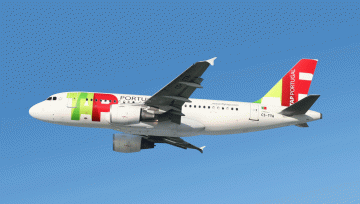
Spending all of your time working in an office means that your working space can easily become a revolving door of interruptions, which is why I think that frequent travelling can boost productivity.
I find that plane travel offers the perfect opportunity to spend some time alone and really focus because no one can distract you. During a flight it’s possible to work effectively by catching up on emails, updating spreadsheets and mulling over strategy. Equally, if the flight is long haul, flying affords the opportunity to switch off and recharge, ready for what lies ahead.
It’s not just about the travel time though. On the whole, people are more inspired and creative when they experience a change of scenery because they’re surrounded by new and different sights and sounds. Workers are challenged when they’re outside their comfort zone and when faced with new people and sights they tend to adopt coping strategies that help them stay calm in stressful situations.
Travelling can challenge the nerves, not least because of clocking up thousands of air miles, language barriers, cultural differences and, on a practical level, tight flight connections and border guard interrogations. For these reasons, frequent travellers develop increased self-awareness, which helps boost overall productivity.
Travellers have to learn to lose control to some extent in a foreign country, often relying on people who they don’t know, which helps to build relationships that are genuine and trustworthy.
People who travel experience more of the world, learning new methods of working, while being exposed to different customs and cultures, which can help them improve the way they work at home.
In addition, travellers tend to be good at negotiating so they don’t get taken advantage of. This is an important skill when it comes to sharpening leadership and business skills.
Travelling often and alone boosts self-confidence, so workers become more self-sufficient, persistent and able to recover better after failure.
While frequent travel adds to the employee experience, people who do so may find themselves working longer hours than their colleagues and subsequently feel resentful, overworked and demoralised. This can lead to problems at work and at home, as well as affecting health, sleep habits and emotional wellbeing.
Factors contributing to this include number of trips taken, nights spent away, time zones crossed, hours in flight and hours flown during personal time. Progressive companies will acknowledge that all of the above can impact on productivity, talent retention, willingness to travel and trip outcomes and take steps to support their workers and ensure they’re happy and well looked after.
Steps to building a good corporate travel policy include booking non-stop flights and quality hotels, post-trip recovery time and comfortable travel conditions. Following these steps will result in staff that are content, motivated and productive.
Paul Casement, Director of Sales and Account Management at Travel Management Company Portman/Clarity












